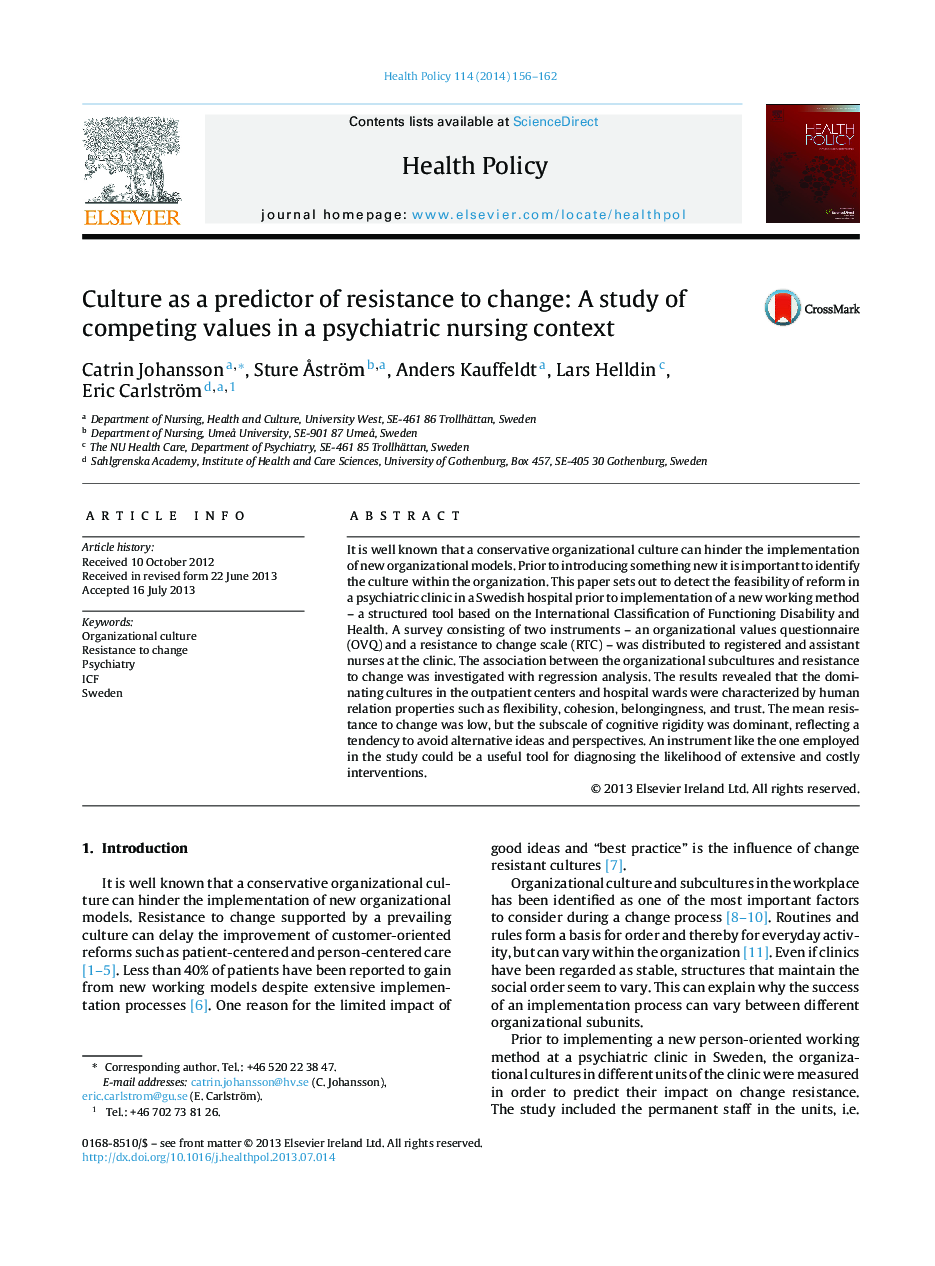| Article ID | Journal | Published Year | Pages | File Type |
|---|---|---|---|---|
| 6239325 | Health Policy | 2014 | 7 Pages |
It is well known that a conservative organizational culture can hinder the implementation of new organizational models. Prior to introducing something new it is important to identify the culture within the organization. This paper sets out to detect the feasibility of reform in a psychiatric clinic in a Swedish hospital prior to implementation of a new working method - a structured tool based on the International Classification of Functioning Disability and Health. A survey consisting of two instruments - an organizational values questionnaire (OVQ) and a resistance to change scale (RTC) - was distributed to registered and assistant nurses at the clinic. The association between the organizational subcultures and resistance to change was investigated with regression analysis. The results revealed that the dominating cultures in the outpatient centers and hospital wards were characterized by human relation properties such as flexibility, cohesion, belongingness, and trust. The mean resistance to change was low, but the subscale of cognitive rigidity was dominant, reflecting a tendency to avoid alternative ideas and perspectives. An instrument like the one employed in the study could be a useful tool for diagnosing the likelihood of extensive and costly interventions.
